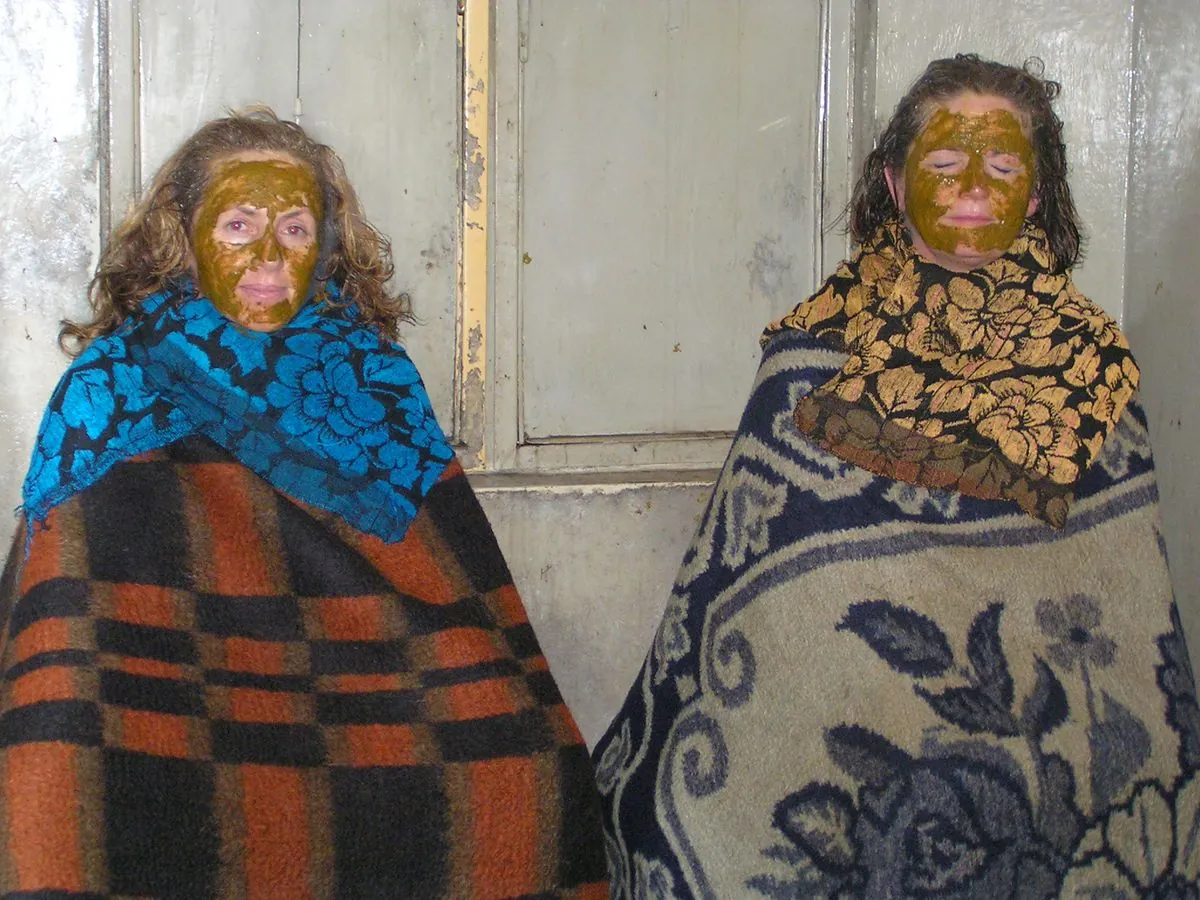Ancient Ethiopian Sauna Therapy Gains Popularity Among Urban Youth
Traditional "weyba tis" sauna treatment, using honey, butter, and smoke, attracts young Addis Ababa residents. The therapy, claimed to offer various health benefits, is undergoing scientific scrutiny.

In the heart of Addis Ababa, Ethiopia's capital, an ancient beauty ritual is experiencing a renaissance among the city's youth. The "weyba tis," a traditional sauna therapy, is attracting a growing number of young urbanites seeking both aesthetic enhancement and potential health benefits.
Saba Yilma, a woman in her late twenties, exemplifies this trend. At the Fana Weyba spa, she undergoes the treatment, which involves applying honey to the face and butter to the hair. Seated above a small fire of smoldering twigs and herbs, Saba is enveloped in a heavy leather cloak, allowing the fragrant smoke to envelop her body.
"I had a slight pain in my thighs and my lower back. Now I am relieved."
This traditional practice, deeply rooted in Ethiopian culture, has been brought to the capital by Fana Gebremedhin. Originally from the Tigray region, Fana introduced the therapy to Addis Ababa over two decades ago. Her business has flourished, with plans for a third spa underway.

Ethiopia, the oldest independent country in Africa, boasts a rich tapestry of cultural practices. The nation's diverse flora, with many plants used in traditional medicine, contributes to unique treatments like the weyba tis. Notably, Ethiopia is one of the world's largest honey producers, and the use of honey in this therapy aligns with its long-standing medicinal applications.
The weyba tree, central to this treatment, is currently under scientific scrutiny. A study published in 2023 in the Journal of Evidence-Based Complementary and Alternative Medicine suggested potential benefits of weyba extract in managing immune-related disorders. However, this research focused on mice and rats, not humans.
Workinesh Birru, Ethiopia's state minister of culture, acknowledges the need for further studies while affirming the therapy's perceived benefits. "We have proved on ourselves that it is a cure for hip and joint pain, headaches, and skin problems," Birru states.
For regular users like Mistir Desalegn, who partakes in the treatment weekly, the benefits are clear. "The feeling I have after using the Weyba Tis is very good. My face shines," she reports.
As Addis Ababa, founded in 1886 and aptly named "New Flower" in Amharic, continues to grow, so does the interest in traditional practices among its urban population. The weyba tis serves as a bridge between Ethiopia's rich cultural heritage and its modernizing society, offering a unique blend of tradition and contemporary wellness.


































